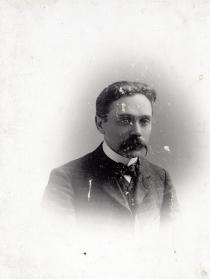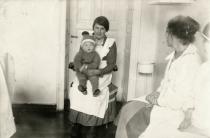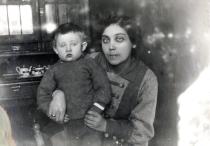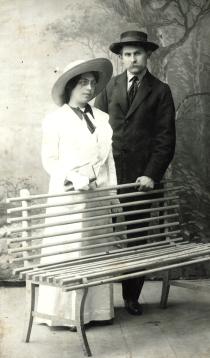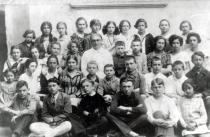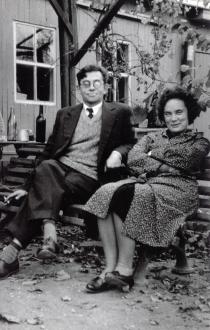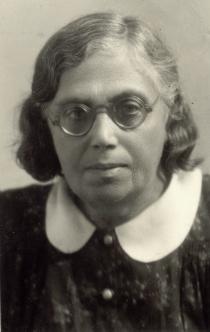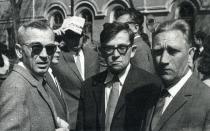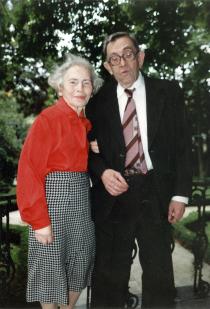These are my parents Semyon Feldman and Rachil Ghendler-Feldman in Moscow. The photo was taken in 1917.
In 1907 my father was arrested for participation in an underground meeting of the Socialist Democratic Party and for armed resistance to the police in Odessa. He was put in a prison in Odessa and was exiled afterwards. My mother had to marry him on the day of his departure to be able to follow him. She submitted a request for permission to enter into a marriage in prison to the general Governor of Odessa. She obtained his permission and they invited a rabbi to prison to have a Jewish wedding. I don't know any details about the wedding. Later they also had a civil ceremony.
My father was exiled to the town of Yarensk, Griazovetski district in Vologda province. My mother followed him. She went to work as a doctor in the local hospital. Local residents left their town for St. Petersburg and Arkhangelsk where they could get a job and only returned home on holidays. On these days my mother had a lot of work to do: they drank a lot and got into hospital with all kinds of injuries. However, the most responsible process was childbirth, as my mother told me. She said that the assistant doctor she worked with could outclass all clinics when he was sober. In 1913 Russia celebrated the 300th anniversary of the Romanov dynasty [the dynasty of Russian tsars]. On this occasion amnesty for criminal and political prisoners was granted. My father was released. My mother and he returned to Odessa.
My father took part in the Revolution of 1917; he was in Moscow with my mother then, but I know about it only in rough outlines. My father was acquainted with Vorovskiy, but I don't know any details. For some years my parents stayed in Moscow and I lived with my paternal grandmother in Novoselskaya Street during that time.
After they returned to Odessa in the 1920s, my father worked for Eurotat, a South Russian joint-stock company that supplied pharmaceuticals. My father polished glass and was a medical equipment mechanic. He died during a typhoid epidemic in Odessa in 1922. He was buried in the Second Jewish cemetery. He had a civil funeral. My mother was a doctor in Moldavanka at the time. She blamed herself for his death. She believed she brought home this infection from her patients. My father and mother were very much in love and after his death there was a cult of his memory in our house.

